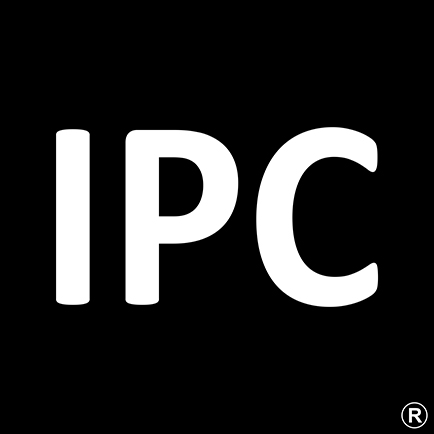Whether you’re manufacturing plastic products through flexible/rigid extrusion or injection moulding, you will need to pay heed to the new regulatory standards put out by the South African Bureau of Standards (SABS).
These regulations affect all plastics manufacturers in South Africa.
However, local manufacturers will also need to remain abreast of REACH and RoHS regulations if they intend on selling their products abroad.
About The New SABS Regulations
In March 2023, the SABS announced that it would be implementing a new set of regulations for the certification of various types of plastics in South Africa.
The goal of the SABS certification regulations is to eliminate all vagueness and promote clarity in the plastic manufacturing industry. Specifically, the SABS stated that the new regulations would make it difficult for companies to assert that something is environmentally safe or environmentally friendly when this is not entirely true.
Going forward, plastic packaging manufacturers will need to subject their products to the appropriate tests and certification requirements to substantiate the claims they make.
Furthermore, all new packaging and plastics manufactured in South Africa will be required to display new labels clearly indicating the type of plastic they are made from. Importantly, these labels must specify whether the plastic is biodegradable. If claims are made regarding the biodegradability of the plastic, it will be subject to stringent tests and certification processes.
One of the challenges pointed out by the SABS is that consumers often do not understand the meanings behind these markings. Therefore, an education campaign will need to be implemented to raise awareness and ensure that consumers are informed about the types of plastics they are using.
What Are The Identification Codes?
The regulations stipulate that the type of plastic material used for packaging must be displayed on the packaging itself, using an identification code ranging from one to seven, enclosed within a triangle.
The identification codes are as follows:
- Polyethylene terephthalate (PET)
- High-density polyethylene (PEHD)
- Polyvinyl chloride (PVC)
- Low-density polyethylene (PELD)
- Polypropylene (PP)
- Polystyrene (PS)
- All other types of polymer materials that do not fit within the preceding six categories
The SABS stated that this should be done to ensure that South African plastic manufacturing aligns more closely with international best practices, which will ultimately enhance recyclers’ ability to properly sort materials. This, in turn, benefits the recycling industry by making it more efficient, accurate, and reliable.
REACH Regulations
The Registration, Evaluation, Authorisation and Restriction of Chemicals (REACH) is a regulation that is primarily enforced in EU member states.
While it doesn’t impact plastics manufacturers in South Africa directly, this regulation has significant implications for those that are involved in exporting products to the European market.
REACH mandates that all chemicals manufactured or imported into the EU in quantities exceeding one tonne per year must be registered with the European Chemicals Agency. This includes any substances used in plastic manufacturing, including additives and plasticisers of various kinds.
Plastics manufacturers in South Africa who are aiming to export their products to the EU need to ensure that their products are compliant with these standards. As a result, they may need to carry out comprehensive testing and furnish detailed documentation of all the chemical substances used in their products.
Non-compliance with REACH mandates can result in restricted market access and substantial penalties.
Most recently, the European Chemicals Agency has identified risks associated with certain additives in PVC, such as plasticisers, which pose environmental and health risks.
As such, the EU has restricted the use of lead, in particular, in any PVC products that fall under REACH regulations. As of November 29, 2024, any companies involved in PVC plastic manufacturers are prohibited from selling PVC products containing lead within the EU Economic Area.
RoHS Regulations
Another EU regulation that affects plastics manufacturers in South Africa is the Restriction of Hazardous Substances (RoHS) regulations. As the name implies, these regulations restrict the use of specific hazardous substances in plastic products, particularly in plastic electrical and electronic equipment. Among the restricted substances are things like lead, mercury, cadmium and certain phthalates.
Any plastics manufacturers in South Africa who produce plastic components for electronic or electrical equipment destined for the EU market need to adhere to RoHS regulations. If they are not compliant, they will have to alter their production processes or face sanctions.
This would involve making modifications to their material compositions or sourcing alternative substances to meet the limits set by RoHS. If local manufacturers fail to meet RoHS standards, they risk having their products recalled and suffering heavy financial penalties.
That said, however, there are some exemptions, which domestic plastic manufacturing companies should be cognisant of. For example, recent amendments to the RoHS have introduced exemptions for lead and cadmium found in recovered rigid PVC used in electrical and electronic doors and windows.
These exemptions are detailed in Directive (EU) 2024/232, which was published on January 10, 2024.
IPC, one of the leading plastics manufacturers in South Africa, specialises in producing flexible and rigid PVC compounds for various applications. Whether you’re looking to do flexible or rigid extrusions or injection mouldings, our compounds can meet your plastic manufacturing needs. Contact us today to learn more.


